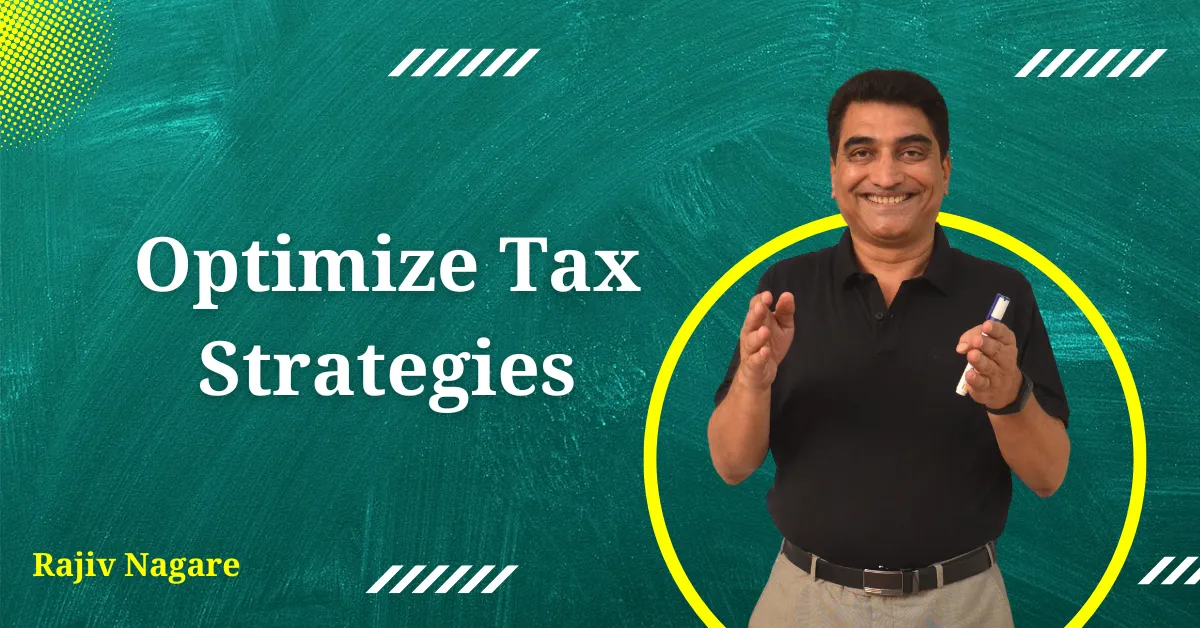How Can I Take Advantage of Tax-Saving Opportunities to Optimize My Financial Strategies?
Tax-saving strategies are fundamental in personal finance, crucial for minimizing tax liabilities while enhancing overall financial planning and wealth accumulation. For young professionals, mastering these strategies can significantly impact long-term financial stability and growth.

Understanding Tax Planning Basics
Tax planning involves strategic maneuvers to minimize tax liability within legal boundaries, distinct from unlawful tax evasion. It's crucial to understand the ethical considerations involved in tax-saving strategies, ensuring compliance while maximizing benefits from available avenues.
Key Tax-Saving Opportunities for Young Professionals
Section 80C Deductions: This section offers a variety of options including contributions to the Employee Provident Fund (EPF), Public Provident Fund (PPF), National Savings Certificate (NSC), Equity-Linked Savings Scheme (ELSS), and life insurance premiums. Each option has specific benefits and eligibility criteria, allowing individuals to save taxes while securing their financial future.
- Employee Provident Fund (EPF): EPF contributions are deductible under Section 80C and are mandatory for salaried individuals. Contributions accumulate with interest and provide a lump sum on retirement or resignation.
- Public Provident Fund (PPF): PPF combines long-term savings with tax benefits. It offers attractive interest rates and tax-free withdrawals, making it a favored option for risk-averse investors.
- Equity-Linked Savings Scheme (ELSS): ELSS investments offer dual benefits of tax savings under Section 80C and potential returns linked to equity markets. They come with a lock-in period of three years, encouraging long-term investment perspectives.
- National Savings Certificate (NSC): NSC investments provide fixed returns and qualify for deductions under Section 80C. They are suitable for conservative investors seeking guaranteed returns.
- Life Insurance Premiums: Premiums paid towards life insurance policies qualify for deductions under Section 80C. They offer financial protection and tax benefits, making them essential for holistic financial planning.
Section 80D Deductions: Deductions on health insurance premiums for self, family, and parents are available under Section 80D. Maximizing benefits involves selecting appropriate health insurance plans and understanding applicable limits to optimize tax savings effectively.
Leveraging Investments for Tax Savings
Equity-Linked Savings Scheme (ELSS): ELSS investments not only offer tax benefits under Section 80C but also provide potential returns linked to equity markets. Understanding risks, lock-in periods, and potential returns is crucial for making informed investment decisions.
Public Provident Fund (PPF): Known for its tax-saving advantages and stable returns, PPF remains a preferred choice for risk-averse investors looking to build wealth while benefiting from tax efficiency.
Tax-Saving Options Beyond Section 80C
Home Loan Benefits: Tax benefits on principal repayment (under Section 80C) and interest payment (under Section 24) of home loans provide substantial savings for young professionals. Understanding eligibility criteria and required documentation is crucial to maximize these benefits effectively.
National Pension System (NPS): NPS offers additional tax benefits under Section 80CCD(1B) for contributions, making it an attractive option for retirement planning. Its flexibility and retirement corpus accumulation advantages further enhance its appeal for securing future financial stability.
Strategies for Freelancers and Self-Employed Professionals
Business Expenses Deductions: Freelancers and self-employed individuals can deduct various business expenses such as office rent, utilities, professional fees, and operational costs. Maintaining detailed records and proper documentation are essential for maximizing these deductions and ensuring compliance with tax regulations.
Retirement Planning Options: Self-employed professionals can benefit from dedicated retirement planning options like the National Pension System (NPS) and voluntary Provident Fund (PF) contributions. These avenues not only provide tax savings but also help build a substantial retirement corpus for long-term financial security.
Advanced Tax-Saving Strategies and Considerations
Tax-Saving Bonds and Infrastructure Bonds: Exploring options like tax-saving bonds under Section 80CCF and infrastructure bonds can further diversify tax-saving portfolios. Understanding eligibility criteria, benefits, and investment considerations is crucial for maximizing tax efficiency.
Capital Gains and Tax Implications: Providing an overview of how capital gains from investments and property are taxed helps in planning strategies like indexation and differentiating between long-term and short-term gains. These insights assist in optimizing tax liabilities effectively.
In conclusion, strategic tax planning is not just about minimizing tax liabilities but also about laying a robust foundation for financial security and wealth accumulation. By leveraging various tax-saving avenues such as Section 80C deductions, investments like ELSS and PPF, and exploring options beyond, young professionals can navigate their financial journey with confidence.
It's imperative to approach tax planning ethically and legally, ensuring compliance with applicable laws and regulations. Consulting with financial advisors or tax experts can provide personalized guidance to maximize benefits and navigate complexities effectively.
Share your thoughts or experiences with tax planning in the comments below.





